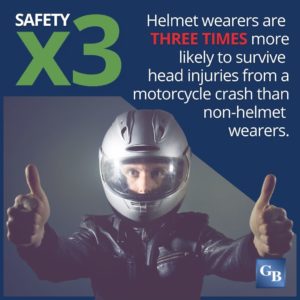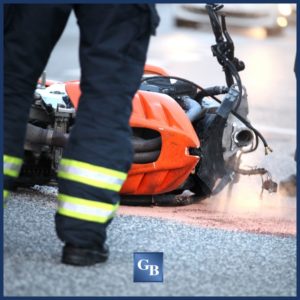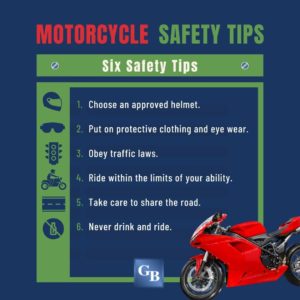 What Types of Laws Apply to Motorcycle Riders?
What Types of Laws Apply to Motorcycle Riders?
Motorcyclists are required to follow all of the rules of the road that any other vehicle must follow. Likewise, other vehicles on the roadway must treat a motorcyclist the same as any other vehicle.
The two main types of laws in Pennsylvania and New Jersey that are specific to motorcycle riders include:
- Laws regarding licensing, registration, and insurance.
- Laws that spell out requirements for what motorcycle riders must wear.
In both states, motorcycles must be titled, registered, and insured. To operate a motorcycle in Pennsylvania, riders must first pass a basic motorcycle knowledge test and a vision test, and then apply for a Class M learner’s permit, which is valid for one year. To get a permanent Class M license, riders must pass a skills test or complete the Pennsylvania Motorcycle Safety Program.
Residents operating a motorcycle in New Jersey must have a motorcycle endorsement on their existing driver license or a separate motorcycle license. Completing the New Jersey Basic Rider Course enables a licensed driver to obtain a motorcycle endorsement.
In New Jersey, all motorcycle riders are required to wear a securely fitted helmet that is approved by the DOT. In Pennsylvania, however, helmets are required only for motorcycle riders who are under 21 years old or have less than two years of riding experience or have not completed a PennDOT or motorcycle safety course.
If riders wear helmets in Pennsylvania, the helmets must meet the standards approved by the DOT. Both Pennsylvania and New Jersey require motorcyclists to wear eye protection and protective clothing.
Helmet wearers are three times more likely to survive head injuries from a motorcycle crash than non-helmet wearers.
 Google Screened
Google Screened

 Why Are Motorcycle Riders More Likely to Suffer Serious Injuries?
Why Are Motorcycle Riders More Likely to Suffer Serious Injuries? What Types of Laws Apply to Motorcycle Riders?
What Types of Laws Apply to Motorcycle Riders? Motorcycles and Alcohol Do Not Mix
Motorcycles and Alcohol Do Not Mix